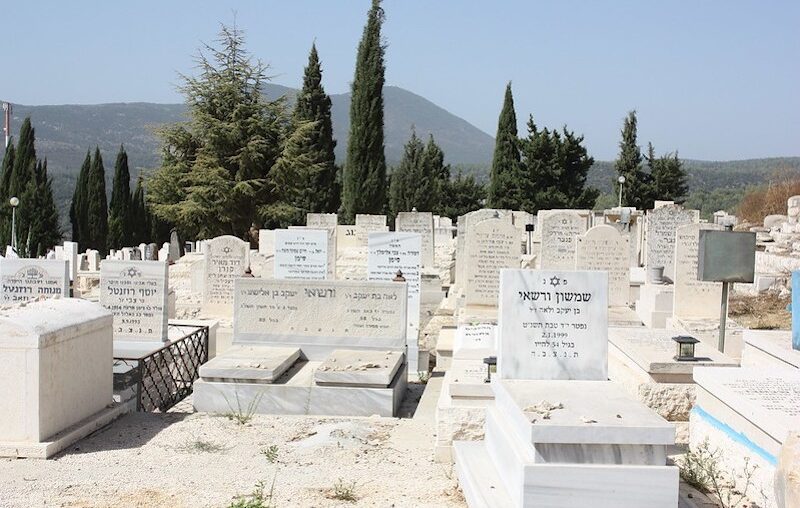This is a tale of absurdity and darkness. I never would have thought I would be caught in the midst of a lawsuit, following a morbid case of gender discrimination of women, posthumously.
It all started last October, while I was witnessing my mother-in-law trying to find an adjacent burial plot for her husband who had just died, and for herself, when her time comes. All she could find in the cemetery in her hometown Holon was a narrow plot, set for two deceased persons one on top of the other, which she bought reluctantly, for the unbelievable sum of NIS 48,500 (nearly AUD 20,300).
When the Shiva was over, deterred as I was from dealing with such matters, I decided to buy an adjacent burial plot for me and my husband, then forget about it, hopefully for many years, as one would do with a will.
I turned to the Chevra Kadisha in my hometown Rehovot, and was asked to set up a date at the premises of the cemetery with Mr Gedaliah Rubinstein, for my morbid shopping. Mr Rubinstein started showing me around. I explained to him that the places he was showing me were too barren and that I liked the farther section, which I understood was older, and where I spotted many trees. He took me there willingly and showed me a place where there were three vacant plots next to each other and to an olive tree. I liked the peaceful place for my and my husband’s future resting place and pointed out the two plots I would like to buy.
Mr. Rubinstein said OK but he has to make a phone call “for a certain clarification”. From what he was saying on the phone I realised there was a “problem”. Quickly enough, the picture cleared: I will not be able to buy either two of the three plots next to the olive tree as – due to the specific constellation in this particular section of the cemetery – I will end up lying (in my death, mind you) next to a… strange man! I wanted to be sure this is what I was hearing and Mr. Rubinstein determinedly repeated his words: It is “an old custom”. The Chevra Kadisha does not allow women to be buried next to men other than their husbands. I am stressing this, as Ynet (the popular website of the Israeli Yediot Aharonot Daily) published an article on this bizarre story and some 700 comments to it in their Facebook page proved to me that people think my husband and I are not really married and that is why we cannot buy a burial plot next to each other. This is clearly not the case. We have been married to each other (by the Rabbinate) since the age of 23.
I tried to convince Mr Rubinstein that I am a liberal Jewish woman and my world view should be respected as well; that women and men are equal in the eyes of the law in life as in death and that Law comes before Custom; that women should be equal to men in the eye of God too, should a God exist; that the Chevra Kadisha should not impose orthodox customs on people exclusively, people are more diverse than that. I went on and on, to no avail. At a certain point I got truly furious. I rushed from there to the offices of the Chevra Kadisha, spoke in length with the (male) secretary there, but that didn’t help either.
Being an advent feminist and a liberal non-religious Jew, I cannot and will not succumb to any form of chauvinism, not even to one veiled as “old Jewish custom”. I decided to turn to court for legal aid, so as to hopefully purchase the two specific burial plots I had been so unjustly denied, as well as to make precedent, so that gender discrimination associated with Jewish burial will be stopped. For that, I turned to IRAC – The Israel Action Centre, a public legal advocacy arm of the Reform Movement in Israel – to seek advice. IRAC offered their legal and moral support and their advocate, Miri Nachmias helped in writing my statement of claim against the Chevra Kadisha. Time will tell what the outcome of this lawsuit might be. I am hopeful.
Here is a link to an article about this story in the Israel Hayom Daily:
(Photo by nborun on Flickr)


Comments are closed.